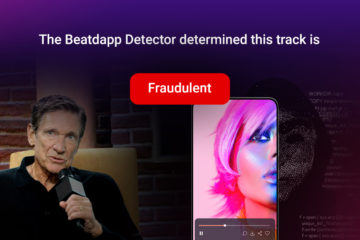In case you haven’t heard – and honestly, at this point, how is that even possible – Elon Musk is planning to acquire Twitter. But, he also might not acquire Twitter. You see, Elon has seized on to the fact that Twitter has a bot problem, and is considering scuttling the deal as a result.
Whether that’s the case really depends on who you ask.
If you work at Twitter, you might say that “since its IPO in 2013, the company has estimated in financial filings that fake accounts or spam accounts made up fewer than 5% of monthly users,” but also that, “the actual number of false or spam accounts could be higher than we have estimated.”
But, if you use Twitter, unlike the people who work at Twitter or sit on its board, you may think that number is higher, given how much engagement on the platform comes from accounts with names like Cindy923742 and 0001221_Love_America.
Truthfully, whether or not Elon buys Twitter isn’t the issue of the day, at least not from our perspective. What is interesting is the question of bot activity on consumer applications.
Back in February of 2022, another Elon-related company disclosed bot activity that had a disastrous effect on its financials. PayPal missed user growth targets after disclosing 4.5 million “illegitimate” accounts that joined the platform that quarter. The stock fell 24% in what was its “worst ever trading day.”
To be clear, that one has literally nothing to do with Elon but for the fact that he was one of the original founders of PayPal (or the two company mash-up that went on to become PayPal more specifically). But maybe, given his exposure to the dynamics that drive bot activity at the highest levels of consumer grade applications, his concerns should be taken seriously.
Which brings us to music streaming, where, yup – you guessed it – bot activity is also a thing. We’ve written about it, the industry has written about it, VICE has documented it, panels have discussed it, and behind the scenes, concerns are both abundant and well-founded.
See, streaming music, much like banking, ecommerce, and social media share some characteristics that make it a prime target for fraud. If you are in the business of ranking, reputation, and/or attention at internet scale, you’re a likely target for fraud. Some have estimated that closer to 9-15% of Twitter profiles are bots. Facebook deactivated 538M fake accounts in 2018. We already talked about Paypal, and the financial services industry knows this problem all too well. Heck, Google even had a Click Fraud Czar at one point.
I would argue that in streaming, because of the possibility for a direct financial windfall AND the possible enhancement to one’s own perceived success, the incentives are even more pronounced.
So when we read about the Elon/Twitter dustup, try not to view it through the lens of merely an entertaining saga of the richest man in the world buying his favorite online toy, but instead as a proxy for bot activity on the internet. Because in our view, it’s a theme that if not mitigated on every platform where it shows up, it has material implications for the value of the services on which those bots operate.
We’re doing our part for the music industry, and hope that as we bring more platforms into the Beatdapp network, we can ensure that the economic value of music is tied to what it should be: the passion of real fans for the artists they love, and not the ulterior motives of fraudsters.
Twitter is just the little blue bird in the coal mine, and we’d all be remiss not to listen to it.


